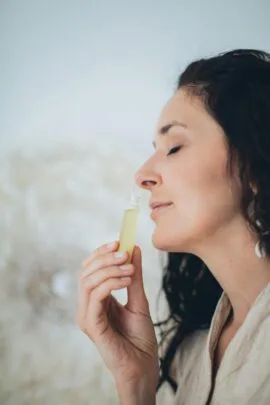
Can You Put Essential Oil in a CPAP? What Sleep Apnea Patients Should Consider
Managing obstructive sleep apnea with a CPAP (Continuous Positive Airway Pressure) device can be life-changing, but some patients wonder if adding essential oils can enhance their experience. The soothing properties of essential oils might seem appealing, especially for improving relaxation and reducing dryness. However, before you attempt putting essential oil in your CPAP, it’s important to understand the risks, alternatives, and proper practices.
Can You Put Essential Oil in a CPAP?
The short answer is no, you should not put essential oil directly into a CPAP device or its components. CPAP devices are designed to deliver clean, pressurized air to your airway. Introducing oils into the system can disrupt its function and potentially harm your health. Here’s why:
Device Damage
Essential oils are not compatible with CPAP machinery. Adding oil to the water chamber, tubing, or mask can corrode materials, clog the device, and void warranties.
Respiratory Risks
Inhaling essential oil particles directly through pressurized airflow can irritate your respiratory system, worsen allergies, or trigger asthma.
Safety Concerns
CPAP devices are considered sensitive medical machinery. Altering them with non-approved substances like essential oils can compromise their safety and effectiveness.
Why Do People Consider Essential Oils for CPAP?
Many people find CPAP therapy uncomfortable due to:
- Dry mouth or nose
- Difficulty relaxing before bed
- Unpleasant plastic odors from the mask or tubing
Essential oils are often used in aromatherapy for their calming or decongestant properties, and it’s understandable to want to combine these benefits with your CPAP therapy to reduce certain discomforts. Lavender, for example, promotes relaxation, while eucalyptus may ease nasal congestion.
Safe Alternatives to Using Essential Oils
While you can’t put essential oil in your CPAP directly, there are safe ways to enjoy aromatherapy without damaging your device:
Aromatherapy Diffusers
Use a diffuser in your bedroom to spread the scent of essential oils throughout the air. This creates a relaxing environment without interfering with your CPAP device.
Aromatherapy Pads or Accessories
Some companies offer CPAP-safe aromatherapy products, such as scented pads or diffusers, that attach outside the CPAP airflow system. These add a mild aroma without introducing oils into the machine.
Pre-Sleep Relaxation
Apply a small amount of diluted essential oil to your pillowcase or a tissue near your bedside. Inhaling the scent before wearing your CPAP mask can help you unwind without risking your therapy.
Addressing CPAP Discomfort
If you’re tempted to try putting essential oil in your CPAP because of dryness, irritation, or difficulty adjusting, consider these solutions:
- Use a Heated Humidifier: Many CPAP machines come with a built-in humidifier to add moisture to the air you breathe. If dryness is an issue, ensure your humidifier is correctly adjusted or consider adding distilled water.
- Try a Heated Hose: A heated hose can maintain warm, moist airflow, reducing dryness and discomfort.
- Replace Components Regularly: Unpleasant smells can result from old or unclean parts. Ensure you clean your mask, tubing, and water chamber regularly and replace them as recommended.
- Experiment with Mask Styles: If you feel uncomfortable, a different mask style might suit you better. Work with your healthcare provider to find the best fit.
- Improve Bedroom Air Quality: Use a humidifier or air purifier to create a comfortable sleep environment. Clean, humidified air can make CPAP therapy feel more natural.
Risks of Improper CPAP Use
Misusing your CPAP device by putting essential oils or other substances into its components can lead to:
- Device Malfunction: Oils can damage sensitive parts, potentially requiring costly repairs or replacements.
- Health Complications: Direct exposure to essential oils can irritate your airways, leading to coughing, congestion, or further complications.
- Reduced Therapy Effectiveness: CPAP machines rely on clean air delivery. Adding foreign substances can interfere with airflow and pressure settings.
If you experience discomfort with CPAP therapy, focus on addressing the root cause – whether it’s dryness, irritation, or mask fit. Consult your healthcare provider or CPAP supplier for solutions tailored to your needs.



